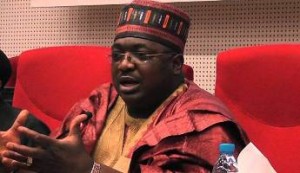
• National Council on Power under way
The National Assembly is considering banning importation of generators as part of efforts to tackle the problem in the power sector.
It also expressed concern about the incessant vandalism of key pipelines that convey gas to thermal power stations and hinted that it might enact legislative measures to safeguard the growth of Nigeria’s nascent liberalised power sector.
Chairman, Senate Committee on Power, Senator Philip Aduda, expressed the National Assembly’s displeasure with developments in the power sector and spoke on the possibility of banning the importation of generators as a step to tackling them.
Aduda spoke at the sixth edition of the national power summit organised by the Ministry of Power in Abuja, where he said pipeline vandalism could be due to sabotage by people involved in the importation and sale of generating sets.
Also at the summit, the ministry announced the approval of President Goodluck Jonathan for the constitution of a hybrid National Council on Power, comprising representatives from the three tiers of government, to tackle challenges in the power sector.
Aduda explained that cases of multiple dynamite blasts on gas pipelines could not just be acts of accident but sabotage.
He added that the National Assembly had resolved to enact legislative measures that would check such obvious impediments to sustainable electricity service delivery in the country.
He said: “We at the National Assembly will also look at these various issues with a view to helping to ensure that if we can get service delivery and ensure that our generators are put off permanently, we are ready to pay for the service.
“As a matter of fact, we are beginning to look at issues as they relate to generator importation. Why is there no gas? The president had conveyed a summit at the villa to discuss the issue of gas so why do we keep having power problem because there is no gas? Because of lack of gas, we are not utilising about 3,000 megawatts (MW). That’s a lot, if put on the national grid.
“We are going to look at those kinds of issues because we want to look at issues as they relate to impediments to having steady power supply in Nigeria. We want to look at various critical issues to ensure that Nigerians have power as well as what the impediments and problems are.
“Those are issues we want to look at and not just this one (ban on generators importation). That is why I said that we want to have a robust roundtable discussion with stakeholders in the power sector, including the new owners of the generation and distribution companies as well as the Transmission Company of Nigeria (TCN).
“We are going to look at what we can do to ensure that service delivery is given to Nigerians and that is why I said that this forum is important because civil societies are brought together to look at issues critically to ensure that we move forward and have power.
“The federal government has spent so much money in this sector and is still spending money to improve the infrastructure so we cannot pay lip-service to these issues. We have to be serious about it to ensure that whoever that much is given, much is expected of the person.”
The Nigerian National Petroleum Corporation (NNPC) had recently disclosed its suspicion of deliberate destruction of critical gas supply pipelines.
NNPC, at a press briefing, said unlike crude oil theft through vandalism of its pipelines, vandals who engage in destruction of gas pipelines seem to do so without any known economic gain but a possible sabotage of the government’s power sector reforms.
It premised its claims on the recent loss of over 30 per cent (480MMsf/d) of the installed gas supply capacity to vandalism; the loss was equivalent to the gas requirement for the generation of about 1,600 megawatts (MW) of electricity.
Meanwhile, the Permanent Secretary in the Ministry of Power, Godknows Igali, stated in his opening remarks at the summit that the soon-to-be constituted National Council on Power would be an expanded forum of managers of the federal government power programmes, state commissioners of power and officers at the local government level involved in the power sector.
Igali however did not provide details on the functions and composition of the council but added that it would provide a platform for all parties to deliberate on shared challenges in electricity service delivery.
